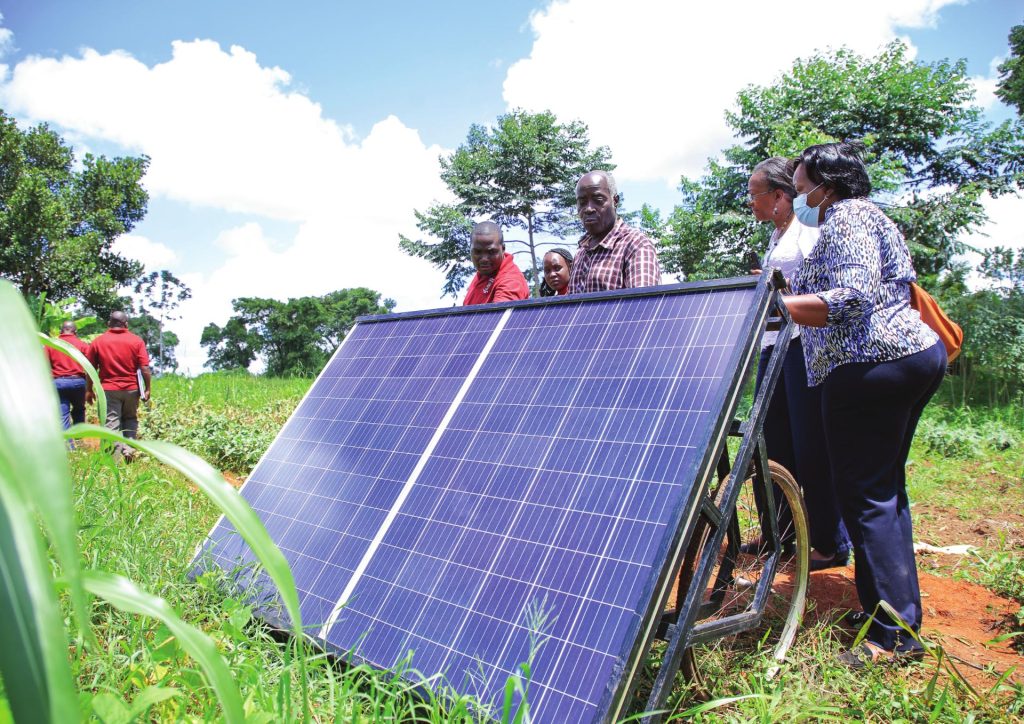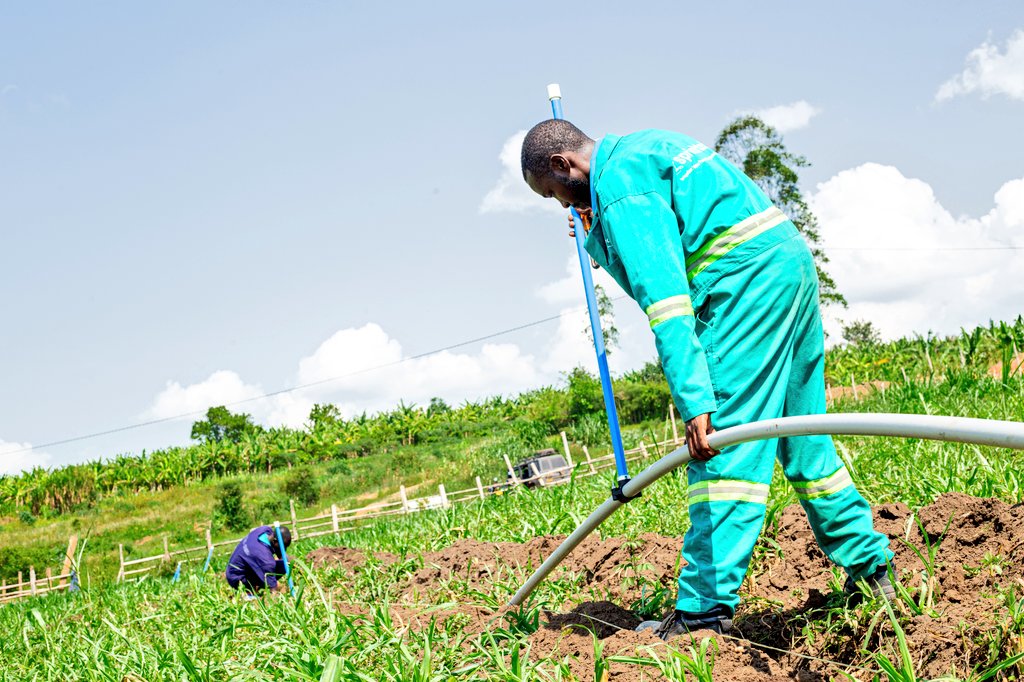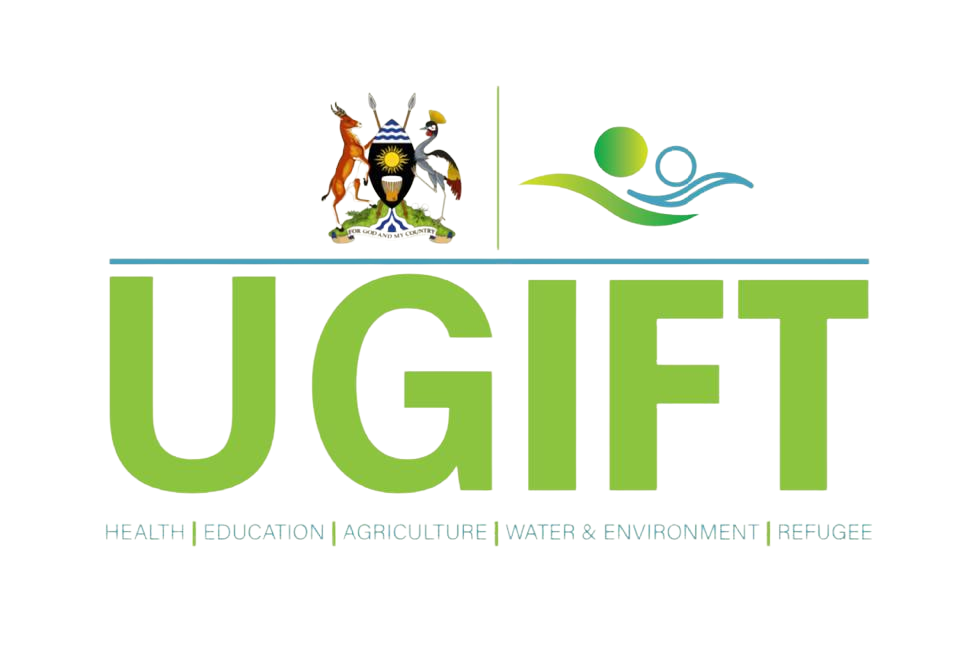Micro‑Scale Irrigation(Agriculture)
Cultivating Resilience, Harvesting Prosperity



UgIFT empowers smallholder farmers to thrive beyond rain‑fed agriculture.
Through matching grants, technical support, and demonstration models, we’re sowing the seeds of climate resilience and food security across 40 districts.
Key Statistics
8,000 smallholder farmers across 40 districts stand to benefit through matching grants
27,000 expressions of interest received, reflecting deep demand and need
10,000 farm visits conducted by extension teams to assess and support implementation
112 demonstration sites completed to showcase irrigation techniques
400 farmers equipped with irrigation equipment
300 local government extension staff trained in modern irrigation methods
Under this scheme, the government covers 25–75% of equipment costs, capped at UGX 7.2 million per acre. Farmers cover the rest, ensuring shared ownership and sustainable use
Acquiring irrigation equipment individually was very expensive until the government stepped in… With UgIFT, I paid just 25%, and now I can farm through the dry season.” — Sadam Kwemboi, Senior Agriculture Engineer, Nabilatuk District
Why This Matters
Year‑Round Production: Farmers grow vegetables and high-value crops even during droughts, rather than praying for rain
Increased Incomes: Early harvests meet premium market windows and boost household earnings
Climate Resilience: Solar and petrol-powered irrigation protects against erratic rainfall and shifting seasons
Systemic Growth: Extension staff and demo plots spread expertise, ensuring knowledge transfer and local uptake
UgIFT is addressing financing challenges and expanding demo sites. With ongoing dialogue about reducing co-payment requirements and enhancing support structures, we aim for wider inclusion and deeper impact
Achievements In Action
Demo farms in Kabale, Kayunga, Nabilatuk, and other districts sparked farmer-led interest and peer learning.
In Kayunga alone, 654 farmers registered, with 116 already equipped, despite challenges with co-financing
Farmers report improved dry-season yields, especially vegetables and coffee, reducing vulnerability to weather shocks

